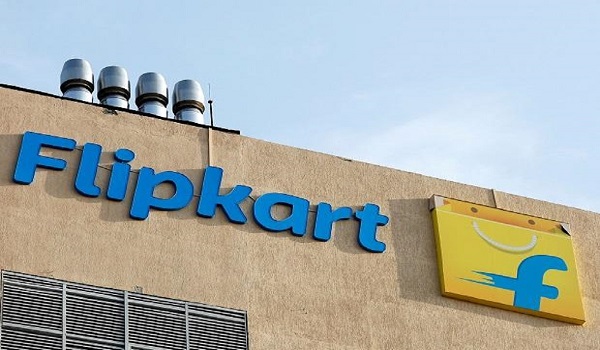With the growing competition in the grocery delivery space, Flipkart is working towards strengthening the market through technology and innovations leveraging deep consumer insights, sustained growth across categories, and strategic investments in new avenues.
According to Smrithi Ravichandran, vice president and head of grocery at Flipkart, the demand for grocery services online has gained immense momentum in the last couple of years. The pandemic acted as a catalyst that gave rise to lifestyle changes and compelled consumers to become more conscious of their choices.
“Our Flipkart Supermart (Flipkart Grocery), which we started in 2018, has been a significant contributor to the overall growth of the platform. Last year, during the festive season, grocery witnessed a 2.3-times increase in new customers using the platform”, she revealed.
Flipkart Grocery currently serves more than 1,800 cities and over 10,000 serviceable pin codes across all 28 Indian states. It has ramped up its operations in the past couple of years by establishing over 23 fulfilment centres spread over an area of 27.5 lakh square feet.
The Indian online grocery market is estimated to reach US$ 26.93 billion in 2027 from US$ 3.95 billion in FY21, expanding at a CAGR of 33% (Ibef). Interestingly, only the top 10 million households that earn over Rs. 20 lakhs a year and spend around 20–25% of their total earnings on grocery items contribute less than 12% to the overall growth of the grocery market in India; however, this segment still has the highest focus and competition currently. The true potential lies in the 277 million households in smaller areas of the nation that earn below 10 lakhs but cumulatively spend over 400 million annually on groceries.
Ravichandran explained that smaller pockets and towns are severely under-tapped, although the paradigm is changing and we witness consumers from non-metros also entering the online space. Last year, nearly 70% of the grocery demand on Flipkart was recorded from Tier II and III cities. “To ensure consumers from smaller cities and towns find a perfect platform for all their daily essentials, we have designed an interactive and inclusive platform as part of our homepage revamp efforts last year”.
As part of the new design, there is a separate and more visible tab available for groceries on the homepage. Additionally, to enable greater inclusivity and reach out to heterogeneous consumers, Flipkart has made its app available in 11 Indian languages so far. Technological capabilities like regional language interfaces and voice assistants have been game-changing in creating a more sustainable e-commerce ecosystem that is both empowering and inclusive for customers from across different regions.
It is estimated that three out of five shoppers belong to tier-2 or smaller cities, one in three shoppers belong to low-to-middle income segments, and one in three shoppers is Gen Z (younger than age 25). Each of these micro-segments exhibits distinct shopping behaviours. For instance, shoppers in tier-2 or smaller cities have a higher salience of voice and vernacular search, whereas low- to middle-income households rely more on image-based search.
Some significant drivers of the e-grocery market that we witness today beyond convenience include higher internet penetration in smaller cities, a secure mode of transaction, access to an expansive and quality selection of regional products, a strengthened supply chain, access to product comparison, personalization and, importantly, a seamless shopping experience enabled through innovation. Disposable income is another significant driver, stated Smrithi Ravichandran.
The Indian consumer’s household expenditure on groceries increases as one goes deeper into the smaller cities. The idea with this category should be to get consumers to transact every month, make it a regular task, and not just once every six months or once a year. In parallel, digital platforms like ours will need to optimize the channel mix, design a tailored assortment, drive high visibility, and build differentiated capabilities around the supply chain, especially for fresh groceries.
Flipkart has made major infrastructure investments to build an inclusive platform that delivers value across India and Bharat as well as serves consumers even in the most remote regions through the power of technology and innovation. Since its inception, it has invested extensively to ease the onboarding of customers, particularly those from outside metro areas, which account for more than 60% of the total consumer base on its platform. Flipkart’s supply chain is also one of our competitive strengths. Currently, we deliver over 100 million shipments per month.
India has robust fundamentals supporting a continued boom in e-grocery services and is essentially a value-centric market, especially in grocery. On average, consumers across Indian households spend around Rs. 6,000 to Rs. 8,000 every month. Annually, the cumulative expenditure on groceries is probably the largest compared to any other category. Naturally, consumers are constantly on the lookout for value in the grocery segment. Even with the penetration of modern retail, the largest players are actually pivoting on value.
“Our aim is to provide consumers with immense value on every purchase, paired with great quality and a wide selection. In the coming years, we will be expanding our presence across more towns and cities in India,” she said.
“For us, fresh groceries have been an important prerogative, and through our strategic partnership with Ninjacart’s made-for-India business-to-business (B2B) supply chain infrastructure and technology solutions, we are ensuring delivery of high-quality fresh produce to our consumers’ doorsteps across the country. Ninjacart powers our backend since they are directly facing the farmers for procurements,” said Ravichandran.
Currently, Flipkart Grocery has trained and built capacity for over 10,000 farmers; the platform has an extensive partnership with over 300 FPOs in India. Last year, Flipkart Grocery collaborated with The Spice Board of India to assist farmers in Idukki, Kerala, with the procurement of spices, provide timely training, and provide access to the pan-India market.


